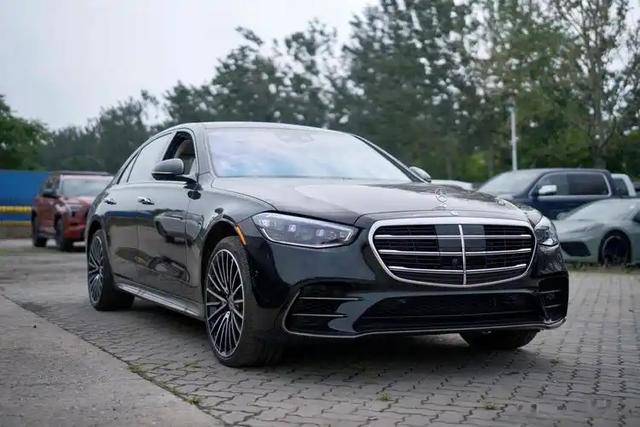As we all know, Mercedes has always been a symbol of luxury and quality in the automotive industry. However, in recent years, its performance in the Chinese market seems to have lost its former strength.
Let’s take a look at the data: In 2024, Mercedes’ sales in the Chinese market fell by 7% year-on-year; in the first half of 2025, it dropped by about 14%, with a staggering 19% decline in the second quarter, making it the most lagging among major global markets. The primary reason behind this is that its level of intelligence has not kept pace.
Consider this: domestic cars, especially those from new power brands, have made remarkable advancements in intelligence. Smart driving, intelligent cockpits, OTA upgrades—they are excelling in these areas. Once, domestic luxury cars held less than 5% market share; now? It’s skyrocketed to 30%!
The halo of traditional luxury brands is gradually being worn away. Mercedes has unfortunately found itself caught in this predicament.
‘Doubao’ Knocks on the Door
Faced with difficulties, Mercedes clearly cannot sit idle. Recently, they have made a significant move: deepening strategic cooperation with ByteDance.
This is no minor affair; it covers almost all areas related to intelligence, from intelligent assisted driving to smart cockpits, and even digital R&D and marketing. The most eye-catching aspect is that the upcoming all-electric CLA will directly feature ByteDance’s ‘Doubao’ large model.
This is not baseless; as early as 2023, ByteDance’s ‘Volcano Car Entertainment’ had already entered Mercedes’ cockpit. In 2024, Mercedes China collaborated with Volcano Engine.
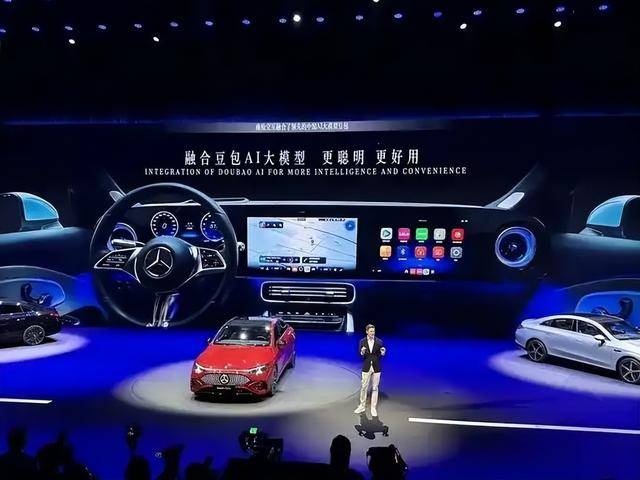
The addition of ‘Doubao’ can be seen as elevating the cooperation to a new peak. Many believe this could be a ‘lifesaver’ for Mercedes in the Chinese market.
So, what exactly is ‘Doubao’ that allows Mercedes to place such high hopes on it? In simple terms, it is an AI large model developed by ByteDance itself and is among the first batch of ‘regular troops’ approved in the country.
Not only does it have powerful capabilities and multimodal abilities, but it is also cost-effective, processing over 1,500 Chinese characters for just 0.08 cents, which is 99.3% cheaper than its peers! This means companies can enjoy top-tier AI services at a lower cost.
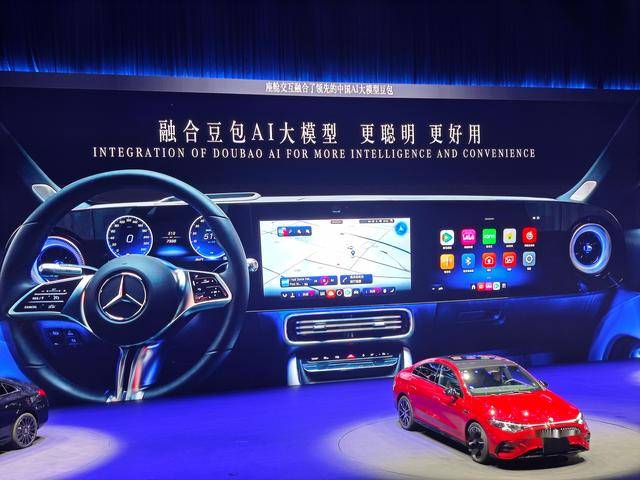
What Can ‘Doubao’ Bring to Mercedes?
Imagine how ‘smart’ Mercedes’ vehicle systems could become with ‘Doubao’ on board. Previously, you might have to articulate commands precisely; now, ‘Doubao’ allows you to converse with the vehicle system in a more natural, conversational manner.
This is undoubtedly a huge attraction for Chinese consumers who are accustomed to ‘smart’ cockpits.
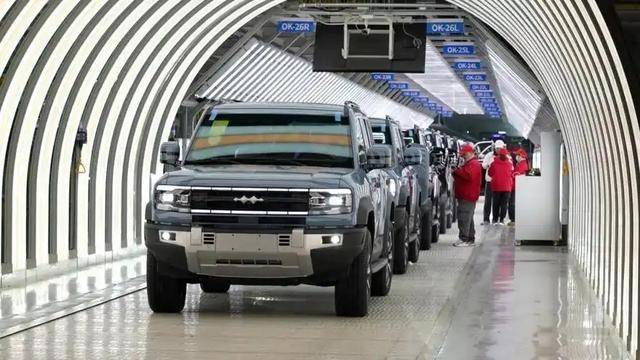
Take the all-electric CLA, for example; with an 800V platform and a range of 866 kilometers, these hard parameters are indeed among the top tier in its class. But to be honest, this merely puts it on par with competitors, not surpassing them.
If Mercedes wants to capture the fiercely competitive price range of 200,000 to 250,000 yuan, relying solely on hardware won’t suffice; it must also consider ‘soft power.’
‘Doubao’s’ AI conversational capabilities, combined with ByteDance’s ecosystem including Douyin, Soda Music, and lifestyle services, are expected to elevate Mercedes’ ‘soft experience’ to a level comparable to that of new power car companies. This is crucial for changing the stereotype of Mercedes as ‘not cutting-edge’ among younger consumers.
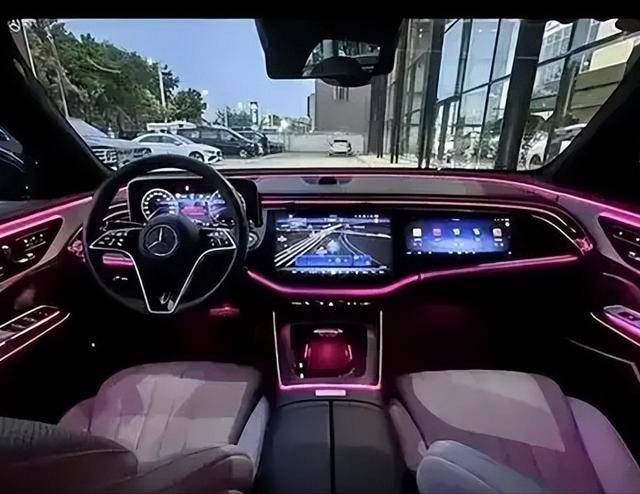
Can ‘Doubao’ Really ‘Save’ Mercedes?
However, while the vision is grand, the reality is stark. Although ‘Doubao’s’ addition brings hope, whether it can truly reverse the downward trend of Mercedes in the Chinese market remains an open question.
First, Mercedes has indeed fallen far behind on the path of intelligence. Domestic brands and new forces began laying out intelligent driving, OTA, and cockpit interaction years ago. Brands like NIO and Xpeng have already launched multiple AI-driven cockpit solutions and continue to iterate and upgrade.
Mercedes is only just starting to make moves, which feels somewhat like ‘closing the barn door after the horse has bolted.’
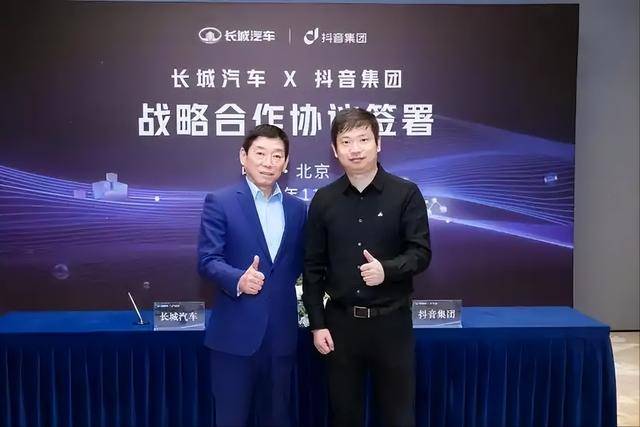
Secondly, while ByteDance has been collaborating in the automotive field continuously, whether ‘Doubao’s’ intelligence can genuinely help traditional car companies escape their predicaments is itself a question that remains to be observed.
Furthermore, Mercedes also faces several ‘hard injuries’ on the technical front. Although they have their own MB.OS intelligent vehicle system, they only announced last year that they would integrate LLM (Large Language Model) into MB.OS, indicating that their self-developed operating system is lagging, and collaboration with local tech companies is progressing slowly, directly leading to slow product iteration.
More critically, in June of this year, Mercedes owners in multiple regions experienced widespread failures of in-car navigation, CarPlay, voice control, and other functions, which took days to fix. These technical failures expose Mercedes’ systematic lag in the intelligence race.
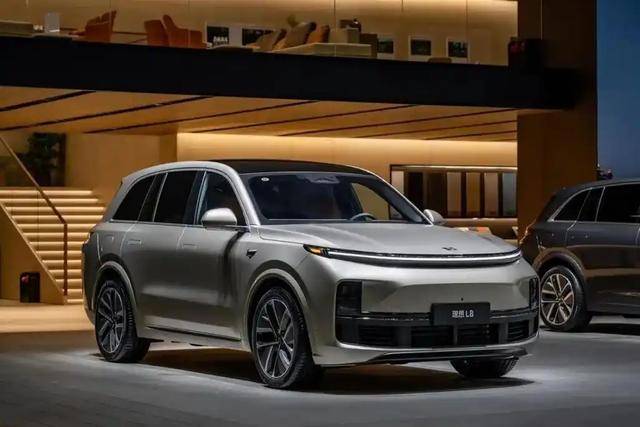
Therefore, in this ‘big test’ of intelligence, the current winners seem to be only ‘Doubao’ and its AI peers that have ‘gotten on board.’ For Mercedes, the cooperation with ByteDance is merely a beginning.
They need to accelerate their pace in the field of intelligence, continuously enhancing their technical level and user experience to have a chance to regain their former glory in the Chinese market. Otherwise, no matter how luxurious ‘Big Ben’ is, if it is not ‘smart enough,’ it may ultimately be eliminated by the market.返回搜狐,查看更多

